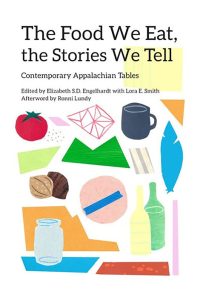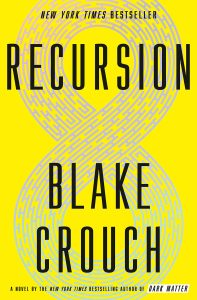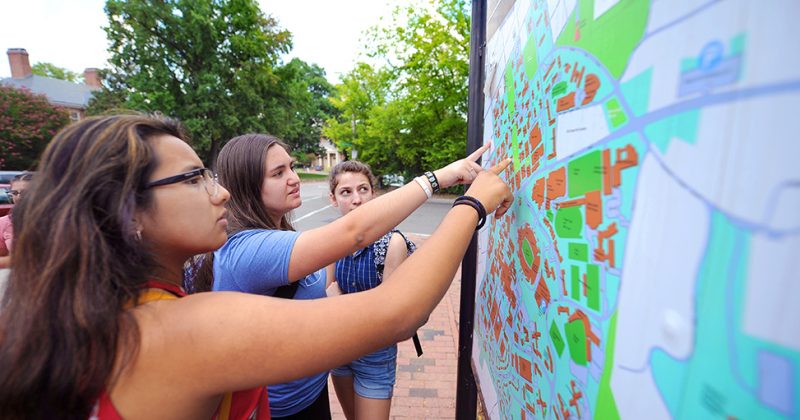
Looking for a good book? Check out these new options for your bookshelf from College of Arts & Sciences' faculty and alumni, published this fall.
Read a story about Carolina alumnus and Habitat for Humanity CEO Jonathan Reckford’s new book, Our Better Angels: Seven Simple Virtues That Will Change Your Life and the World.
The Shining Path: Love, Madness and Revolution in the Andes (W.W. Norton & Company, April 2019) by Miguel La Serna, associate professor of history, and Orin Starn of Duke University. On May 17, 1980, on the eve of Peru’s presidential election, five masked men stormed a small town in the Andean heartland. They set election ballots ablaze and vanished into the night, but not before planting a red hammer-and-sickle banner in the town square. The lone man arrested the next morning later swore allegiance to a group called Shining Path. La Serna and Starn’s narrative history of Shining Path is set against the socioeconomic upheavals of Peru’s rocky transition from military dictatorship to elected democracy. Read a story about the book.
Sisters and Rebels: A Struggle for The Soul of America (W.W. Norton & Company, May 2019) by Jacquelyn Dowd Hall, Julia Cherry Spruill Professor Emerita of History. The Lumpkin sisters grew up in a former slaveholding family in which devotion to white supremacy and veneration of the Confederacy went hand in hand. Elizabeth, the eldest, remained a lifelong believer, but her younger sisters chose vastly different lives for themselves. In Sisters and Rebels, Hall offers an epic narrative of American history told through a buried tradition of expatriation, female reinvention, and Southern radicalism and reaction that speaks directly to our own times. The book was reviewed by The New York Times. Read a magazine story that features the book.
 A South You Never Ate: Savoring Flavors and Stories from the Eastern Shore of Virginia (UNC Press, October 2019) by Bernard L. Herman, interim chair of American studies and George B. Tindall Professor of Southern Studies. In this inviting narrative, Herman welcomes readers into the communities, stories and flavors that season a land where the distance from tide to tide is often less than five miles. Blending personal observation, history, memories of harvests and feasts and recipes, Herman tells of life along the Virginian Eastern Shore through the eyes of its growers, watermen, oyster and clam farmers, foragers, church cooks, restaurant owners and everyday residents.
A South You Never Ate: Savoring Flavors and Stories from the Eastern Shore of Virginia (UNC Press, October 2019) by Bernard L. Herman, interim chair of American studies and George B. Tindall Professor of Southern Studies. In this inviting narrative, Herman welcomes readers into the communities, stories and flavors that season a land where the distance from tide to tide is often less than five miles. Blending personal observation, history, memories of harvests and feasts and recipes, Herman tells of life along the Virginian Eastern Shore through the eyes of its growers, watermen, oyster and clam farmers, foragers, church cooks, restaurant owners and everyday residents.
The Food We Eat, the Stories We Tell: Contemporary Appalachian Tables (Ohio University Press, October 2019) by Elizabeth Engelhardt, interim senior associate dean of fine arts and humanities and the John Shelton Reed Distinguished Professor of Southern Studies, and Lora E. Smith, who directs the Appalachian Impact Fund. Blue Ridge tacos, kimchi with soup beans and cornbread, family stories hiding in cookbook marginalia, African American mountain  gardens —this wide-ranging anthology considers all these and more. Diverse contributors show us that contemporary Appalachian tables and the stories they hold offer new ways into understanding past, present and future American food practices.
gardens —this wide-ranging anthology considers all these and more. Diverse contributors show us that contemporary Appalachian tables and the stories they hold offer new ways into understanding past, present and future American food practices.
Black Towns, Black Futures: The Enduring Allure of a Black Place in the American West (UNC Press, November 2019) by Karla Slocum, director of the Institute of African American Research and associate professor of anthropology. Some know Oklahoma’s black towns as historic communities that thrived during the Jim Crow era — this is only part of the story. Drawing on interviews and observations of town life spanning several years, Slocum reveals that people from diverse backgrounds are still attracted to the communities because of the towns’ remarkable history as well as their racial identity and rurality. Giving readers a complex window into black town and rural life, Slocum ultimately makes the case that these communities are places for affirming, building and dreaming of black community success even as they contend with the sometimes marginality of black and rural America.
Masada: From Jewish Revolt to Modern Myth (Princeton University Press, May 2019) by Jodi Magness, Kenan Distinguished Professor for Teaching Excellence in Early Judaism. Two thousand years ago, 967 Jewish men, women and children — the last holdouts of the revolt against Rome following the fall of Jerusalem and the destruction of the Second Temple — reportedly took their own lives rather than surrender to the Roman army. This dramatic event, which took place on top of Masada, a barren and windswept mountain overlooking the Dead Sea, spawned a powerful story of Jewish resistance that came to symbolize the embattled modern State of Israel. Magness, an archaeologist who has excavated at Masada, explains what happened there, how we know it and how recent developments might change understandings of the story. The book was featured in Mosaic magazine. Read another article in The Times of Israel.
Peaceful Families: American Muslim Efforts Against Domestic Violence (Princeton University Press, September 2019) by Juliane Hammer, associate professor of religious studies. In Peaceful Families, Hammer chronicles and examines the efforts, stories, arguments and strategies of individuals and organizations doing Muslim anti–domestic violence work in the United States. Hammer demonstrates how Muslim advocates mobilize a rich religious tradition in community efforts against domestic violence, and identify religion and culture as resources or roadblocks to prevent harm and to restore family peace. Highlighting the place of Islam as an American religion, Peaceful Families delves into the efforts made by Muslim Americans against domestic violence and the ways this refashions society at large.
 The Rest of the Story (Balzer + Bray, June 2019) by Sarah Dessen (English ’93). In Dessen’s latest novel, her 14th in the young adult fiction genre, Emma Saylor doesn’t remember a lot about her mother, who died when she was 12. But Emma does remember the stories her mom told her about the big lake that went on forever, with cold, clear water and mossy trees at the edges. Now it’s just Emma and her dad, and life is good, if a little predictable … until Emma is unexpectedly sent to spend the summer with her mother’s family that she hasn’t seen since she was a little girl. Read a News & Observer story on the book.
The Rest of the Story (Balzer + Bray, June 2019) by Sarah Dessen (English ’93). In Dessen’s latest novel, her 14th in the young adult fiction genre, Emma Saylor doesn’t remember a lot about her mother, who died when she was 12. But Emma does remember the stories her mom told her about the big lake that went on forever, with cold, clear water and mossy trees at the edges. Now it’s just Emma and her dad, and life is good, if a little predictable … until Emma is unexpectedly sent to spend the summer with her mother’s family that she hasn’t seen since she was a little girl. Read a News & Observer story on the book.
The Two Powers: The Papacy, the Empire and the Struggle for Sovereignty in the Thirteenth Century (University of Pennsylvania Press, June 2019) by Brett Whalen, associate professor of history. Historians commonly designate the High Middle Ages as the era of the “papal monarchy,” when the popes of Rome vied with secular rulers for spiritual and temporal supremacy. Covering pivotal decades that included the last major crusades, the birth of the Inquisition, and the unexpected invasion of the Mongols, The Two Powers shows how Gregory IX and Innocent IV’s battles with Frederick II shaped the historical destiny of the 13th-century papacy and its role in the public realm of medieval Christendom.
 Monsters to Destroy: Understanding the War on Terror (Oxford University Press, November 2019) by Navin Bapat, professor of political science and chair of the curriculum in peace, war and defense. Terrorism kills far fewer Americans annually than automobile accidents, firearms or even lightning strikes. Given this minimal risk, why does the United States continue expending lives and treasure to fight the global war on terror? In Monsters to Destroy, Bapat argues that the war on terror provides the U.S. a cover for its efforts to expand and preserve American control over global energy markets. Bapat provides a sweeping look at how the loss of influence over these states, who are critical in the extraction, sale and transportation of energy, has accelerated the decline of U.S. economic and military power, locking it into a permanent war for its own economic security.
Monsters to Destroy: Understanding the War on Terror (Oxford University Press, November 2019) by Navin Bapat, professor of political science and chair of the curriculum in peace, war and defense. Terrorism kills far fewer Americans annually than automobile accidents, firearms or even lightning strikes. Given this minimal risk, why does the United States continue expending lives and treasure to fight the global war on terror? In Monsters to Destroy, Bapat argues that the war on terror provides the U.S. a cover for its efforts to expand and preserve American control over global energy markets. Bapat provides a sweeping look at how the loss of influence over these states, who are critical in the extraction, sale and transportation of energy, has accelerated the decline of U.S. economic and military power, locking it into a permanent war for its own economic security.
Difference and Orientation: An Alexander Kluge Reader (Cornell University Press, September 2019) edited by Richard Langston, professor of German. Alexander Kluge is one of contemporary Germany’s leading intellectuals and artists. A key architect of the New German Cinema and a pioneer of auteur television programming, he has also co-written three acclaimed volumes of critical theory, published countless essays and numerous works of fiction and continues to make films even as he expands his video production to the internet. With the aim of introducing Kluge to a broader readership, this landmark volume brings together some of his most fundamental statements on literature, film, pre- and post-cinematic media and social theory, nearly all for the first time in English translation.
The End of the World in Medieval Thought and Spirituality (Palgrave Macmillan, April 2019) by Jessica Boon, associate professor of religious studies and Eric Knibbs of Monumenta Germaniae Historica and Erica Gelser of Wellesley. This essay collection studies the Apocalypse and the end of the world, as these themes occupied the minds of biblical scholars, theologians and ordinary people in Antiquity, the Middle Ages and Early Modernity. It opens with an innovative series of studies on “Gendering the Apocalypse.” In these essays, scholars of history, theology and literature create a dialogue that considers how fear of the end of the world, among the most pervasive emotions in human experience, underlies a great part of Western cultural production.
 Recursion (Random House, June 2019) by Blake Crouch (English and creative writing ’00.) Memory makes reality. That’s what New York City cop Barry Sutton is learning as he investigates the devastating phenomenon the media has dubbed False Memory Syndrome — a mysterious affliction that drives its victims mad with memories of a life they never lived. Neuroscientist Helena Smith has dedicated her life to creating a technology that will let people preserve the most precious moments of their pasts. As Barry searches for the truth, he comes face-to-face with an opponent more terrifying than any disease — a force that attacks not just people’s minds but the very fabric of the past. how can they make a stand when reality itself is shifting and crumbling all around them? Read a story on the book in The News & Observer.
Recursion (Random House, June 2019) by Blake Crouch (English and creative writing ’00.) Memory makes reality. That’s what New York City cop Barry Sutton is learning as he investigates the devastating phenomenon the media has dubbed False Memory Syndrome — a mysterious affliction that drives its victims mad with memories of a life they never lived. Neuroscientist Helena Smith has dedicated her life to creating a technology that will let people preserve the most precious moments of their pasts. As Barry searches for the truth, he comes face-to-face with an opponent more terrifying than any disease — a force that attacks not just people’s minds but the very fabric of the past. how can they make a stand when reality itself is shifting and crumbling all around them? Read a story on the book in The News & Observer.
Build: The Power of Hip Hop Diplomacy in a Divided World (Oxford University Press, November 2019) by Mark Katz, professor of music. Since 2001, the U.S. Department of State has been sending hip hop artists abroad to perform and teach as goodwill ambassadors. Hip hop has, from its beginning, been a means of creating community through artistic collaboration, fostering what hip hop artists call building. A timely study of U.S. diplomacy, Katz’s book Build reveals the power of art to bridge cultural divides, facilitate understanding, and express and heal trauma. He makes the case that hip hop, at its best, can promote positive, productive international relations between people and nations.
Hustle and Gig: Struggling and Surviving in the Sharing Economy (University of California Press, March 2019) by Alexandrea J. Ravenelle, assistant professor of sociology. Choose your hours, choose your work, be your own boss, control your own income. Welcome to the sharing economy, a nebulous collection of online platforms and apps that promise to transcend capitalism. Ravenelle shares the personal stories of nearly 80 predominantly millennial workers from Airbnb, Uber, TaskRabbit and Kitchensurfing. Their stories underline the volatility of working in the gig economy: the autonomy these young workers expected has been usurped by the need to maintain algorithm-approved acceptance and response rates. Discerning three types of gig economy workers — Success Stories, who have used the gig economy to create the life they want; Strugglers, who can’t make ends meet; and Strivers, who have stable jobs and use the sharing economy for extra cash — Ravenelle examines the costs, benefit and societal impact of this new economic movement.
The Campus at Chapel Hill: Two Hundred Twenty-Five Years of Architecture (Chapel Hill Historical Society, September 2019) by John V. Allcott, with an addendum by JJ Bauer, visual resources curator and teaching assistant professor in the department of art and art history. Explore the architectural history and significance of iconic buildings on the UNC campus: the ideas and architects involved, the people (including high-spirited students) who were prime movers for specific buildings, and how green design initiatives have been incorporated into current buildings. The newly released and updated book from the Chapel Hill Historical Society, The Campus at Chapel Hill: 225 Years of Architecture, provides an in-depth look at the architecture of the nation’s oldest campus. Read a story on the book.
 Speaking of Feminism: Today’s Activists on the Past, Present and Future of the U.S. Women’s Movement (UNC Press, July 2019) by Rachel F. Seidman, director of the Southern Oral History Program. From the Women’s Marches to the MeToo movement, it is clear that feminist activism is still alive and well in the 21st century. Seidman presents insights from 25 feminist activists from around the United States, ranging in age from 20 to 50. Allowing their voices to take center stage through the use of in-depth oral history interviews, Seidman places their narratives in historical context and argues that they help explain how recent new forms of activism developed and flourished so quickly. These individuals’ compelling life stories reveal their hard work to build flexible networks, bridge past and present, and forge global connections.
Speaking of Feminism: Today’s Activists on the Past, Present and Future of the U.S. Women’s Movement (UNC Press, July 2019) by Rachel F. Seidman, director of the Southern Oral History Program. From the Women’s Marches to the MeToo movement, it is clear that feminist activism is still alive and well in the 21st century. Seidman presents insights from 25 feminist activists from around the United States, ranging in age from 20 to 50. Allowing their voices to take center stage through the use of in-depth oral history interviews, Seidman places their narratives in historical context and argues that they help explain how recent new forms of activism developed and flourished so quickly. These individuals’ compelling life stories reveal their hard work to build flexible networks, bridge past and present, and forge global connections.
Arrayed in Splendor: Art, Fashion and Textiles in Medieval and Early Modern Europe (Brepols Publishers, May 2019) by Christoph Brachmann, Mary H. Cain Distinguished Professor of Art History. Precious textiles, fabrics, embroideries and tapestries played an important role in medieval and early modern cultures of representation. Ranging from the 12th to the 17th centuries, this collection of essays of leading scholars in the field offers an invaluable window into the complexity of the textile arts and their medium, from the overpowering splendour of liturgical and princely garments and the luxurious fabrics used for them in the Middle Ages and early modern period, to the visual world of monumental room decorations in the form of tapestries.
Ghosts of Sheridan Circle: How a Washington Assassination Brought Pinochet’s Terror State to Justice (UNC Press, September 2019) by Alan McPherson (Ph.D. history ’01). On September 21, 1976, a car bomb killed Orlando Letelier, the former Chilean ambassador to the United States, along with his colleague  Ronni Moffitt. With interviews from three continents, never-before-used documents and recently declassified sources that conclude that Pinochet himself ordered the hit and then covered it up, McPherson has produced the definitive history of one of the Cold War’s most consequential assassinations. This page-turning real-life political thriller combines a police investigation, diplomatic intrigue, courtroom drama and survivors’ tales of sorrow and tenacity.
Ronni Moffitt. With interviews from three continents, never-before-used documents and recently declassified sources that conclude that Pinochet himself ordered the hit and then covered it up, McPherson has produced the definitive history of one of the Cold War’s most consequential assassinations. This page-turning real-life political thriller combines a police investigation, diplomatic intrigue, courtroom drama and survivors’ tales of sorrow and tenacity.
Cyber-Smarts: Raising Children in a Digital Age (BASIL, April 2019) by Richard Bromfield (M.A. psychology ’83, Ph.D. psychology ’85). The internet and technology are wonders that inform, entertain and prepare children for tomorrow. But they also comprise a world that holds its own perils. Cyber-Smarts lends parents a perspective and strategies to help their young children grow up learning to use and inhabit their screens more safely, responsibly and independently. Bromfield, a Harvard Medical School psychologist, writes about children, families and psychotherapy.
The Safecracker (TouchPoint Press, September 2019) by Jim Garrison (English and history ’68). In this multi-layered legal thriller, idealistic young lawyer Patricia Egan has a housemate she doesn’t like and a client she doesn’t want — a professional safecracker who seems far removed from the well-heeled civil clients her firm has been representing. But the safecracker and her former clients are closely linked in their respective criminal enterprises, something they want no one to discover, certainly not Patricia or her fellow lawyer and housemate, Jack Alexander. There’s a string of dead and maimed people to prove it.
Culinary Nationalism in Asia (Bloomsbury Academic, July 2019), edited by Michelle T. King, associate professor of history. King’s new book sets out a fresh agenda for thinking about future food studies scholarship. Key themes include the historical legacies of imperialism/colonialism, nationalism, the Cold War and global capitalism in Asian cuisines; internal culinary boundaries between genders, ethnicities, social classes, religious groups and perceived traditions/modernities; and global contexts of Asian cuisines as both nationalist and internationalist enterprises.
 Road Sides: An Illustrated Companion to Dining and Driving in the American South (University of Texas Press, October 2019) by Emily Wallace, deputy editor and art director of Southern Cultures in the Center for the Study of the American South. An illustrated glovebox essential, Road Sides explores the fundamentals of a well-fed road trip through the American South, from A to Z. There are detours and destinations, accompanied by detailed histories and more than 100 original illustrations that document how we get where we’re going and what to eat and do along the way. Learn more.
Road Sides: An Illustrated Companion to Dining and Driving in the American South (University of Texas Press, October 2019) by Emily Wallace, deputy editor and art director of Southern Cultures in the Center for the Study of the American South. An illustrated glovebox essential, Road Sides explores the fundamentals of a well-fed road trip through the American South, from A to Z. There are detours and destinations, accompanied by detailed histories and more than 100 original illustrations that document how we get where we’re going and what to eat and do along the way. Learn more.
Published in the Fall 2019 issue | Chapter & Verse
Read More

‘The power of adaptation’
An annual conference brings together passionate Jane Austen fans, scholars…



